The First Law trilogy – parallels with The Wire (no, really!)
I finished Joe Abercrombie’s excellent trilogy at the weekend, and it left me with a thousand thoughts. Okay, maybe not a thousand. One has to be realistic, after all. One line of thinking I had was that characters tried to change but greater forces crushed their efforts. Logen falls back into the world of the Bloody Nine when violence rears its ugly head. Jezal wants to be a better man, too, and ends up in the position to do so, but is powerless against the will of Bayaz. Glokta? Maybe he could change, but one suspects (as he keeps telling the reader), he has had so much stripped away that he is the only way he can be now. Please note I have not read further books. I have a hope that, if the story does continue, Ardee and Glokta will pull each out of their respective pits of despair.
 Compulsive reading.
Compulsive reading.This is perhaps the main theme of The Wire: the institutions and environments make change for the better almost impossible. McNulty wants to do good police work but Rawls and Burrell are far too concerned about their promotions and retirement to allow it. Having good numbers is far more important than actually solving crimes and bringing the perpetrators to justice. Frank Sobotka is fighting against a cop with a petty grudge, changing times and a powerful drug-smuggling operation. Tommy Carcetti quickly comes up against the realities of the political world. And the tragedy of the school kids is heart-breaking. Dookie especially. Even Stringer Bell (no benevolent hero) finds himself in a world just as corrupt as the one he is trying to leave when he attempts to go legitimate. Bubbles is the only one who truly escapes the prison he was in, one of addiction.
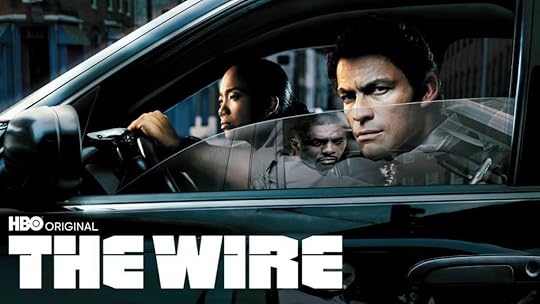 Compulsive viewing.
Compulsive viewing.Both First Law and The Wire subvert the more traditional trope of one man (usually a bloke!) heroically changing the world by himself, often because he’s The Chosen One or a fantastically capable police officer. First Law and The Wire give us what is a more realistic view of the way things are, which is that heroes can only run or fight so far, until they are stopped by entrenched, immovable forces. Both the books and the show should make for depressive consumption, but they are not. Not entirely anyway. They are thoroughly compelling, mainly due to the quality of the writing. It is perhaps the struggles of individual characters that make it so engrossing. We want them to succeed and cheer them on, even though we know failure is likely and the cost may be great indeed. The struggle is what gives us hope, maybe. Abercrombie dances perilously close to a hopeless state of affairs, but in my opinion, deftly stays this side of the line, giving the reader enough to grasp at, a slim thread that may lead to something better.
Let’s look at some of the individual characters. I want to start with Bayaz, as the Tolkien fan in me has a few words to say!
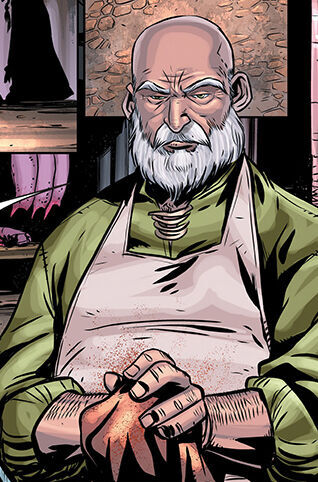 Bayaz, First of the Magi, as illustrated in the graphic novel ‘Joe Abercrombie’s The First Law‘
Bayaz, First of the Magi, as illustrated in the graphic novel ‘Joe Abercrombie’s The First Law‘So Bayaz is god-like in his powers and his perception of the world. People are short-lived and nothing more than cattle. He would sacrifice thousands for whatever he believes to be “the greater good”. Bayaz is basically the anti-Gandalf. Whereas Gandalf saw in the Shire something that was worth fighting for, Bayaz is dismissive of even trying to help those less fortunate. Gandalf was a benevolent guide and guardian, marshalling forces against a truly terrible threat. Bayaz? Is he any better than Khalul? Are the thousands of deaths in the First Law books simply a result of their bitterness towards the other? There is nothing noble in Bayaz’ methods or even goals. He claims to be preserving the Union, but is he just preserving something that allows him to delve deeper into magic and knowledge, a buffer between himself and Khalul? A man needs peace and quiet to study after all. I doubt Logen’s father told him that, but he may have.
Just as Bayaz cares not one whit about the deaths he causes towards the end of LAOK, one can argue that those higher up the ladder in The Wire lose no sleep over the death and suffering that occurs in the city of Baltimore. What they do lose sleep over is how it makes them look. As McNulty could see, black people getting murdered in the poor neighbourhoods was nothing newsworthy, but a serial killer on the loose? Now that makes the authorities look bad and provides delicious headlines.
Invested interests make it almost impossible for Jezal to be a good king and McNulty to bring down the drug king-pins. Ned Stark refused to play the games of thrones. Jezal has to play the game under strict instruction from Bayaz. McNulty tries to cheat the game and has limited success. All three lose a great deal but what is the alternative? Ned cannot say no to his king and friend, Robert Barratheon. Jezal is trapped now in the cage Bayaz carefully constructed. And McNulty has to leave the police. They struggle against the way it is, and ultimately failed to change anything of significance.
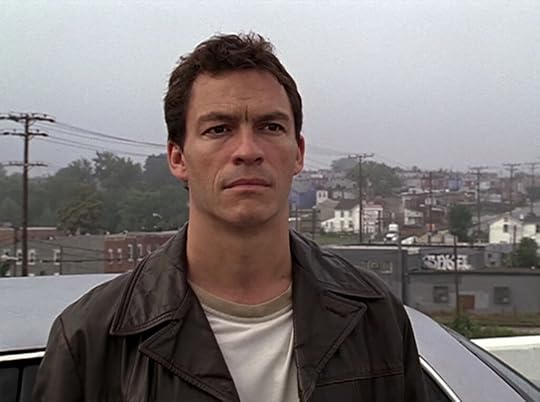
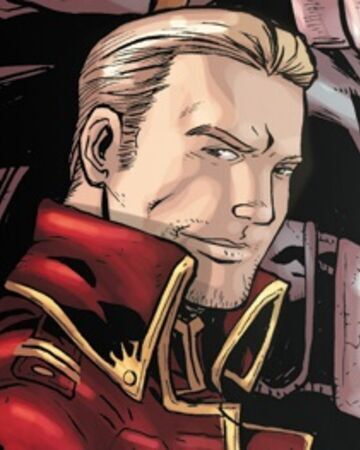
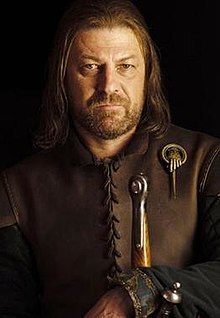
Logen Ninefingers. His journey with Bayaz and company offers a glimpse of what could be. Away from the violence of the north, away from his bloody past and all the grudges it has born, he becomes a better person. He helps Jezal, finds a kind of intimacy with Ferro, and the Bloody Nine only makes one appearance, I believe (when he and Ferro encounter the Shanka). Keep him away from the violence, or find a way to channel it, and Logen moves away from his brutal past. But alas, he returns to the north, returns to the environment that created him, returns to the killing. I feel we should hate Logen for his misdeeds, but there is a real sense of tragedy there. I’m not qualified to go into just what the Bloody Nine is, but it seems like an extreme form of dissociative identity disorder (DID). Violence triggers the emergence of this other personality. If he had stayed away from the north, would he have had a chance at a life free from the Bloody Nine?
in The Wire, we have more than one character who cannot escape their environment. I want to look at Michael, as his arc is particularly tragic. Like Logen, there are glimpses at a life away from the violence. Michael is intelligent and caring, and in a different environment, one suspects he could have gone onto a prosperous life. But external forces pull him deeper into the darkness. Marlo, Chris and Snoop want him to join their organisation. Cutty’s good intentions are misunderstood due to Michael’s own upbringing. The struggle to care for his younger brother, Bug, pushes him to accepting work within the drug trade. In the end he has become a cold-blooded killer. It’s likely he’ll end up like Omar, with many enemies and a senseless death. The choices he faces are similar to the ones many characters in both First Law and The Wire confront; essentially no choice at all. One path leads to an early death or hurting those you love, the other path brings short-term gains but a road that you will be stuck walking until you die. This is, I think, part of what makes First Law and The Wire so utterly compelling – we don’t condone their actions, but we can empathise to a degree with their predicaments. We want them to find a better way but it’s hard to blame them for the path they take. I find it strange in the real world when people say, “Everyone has a choice.” Really?


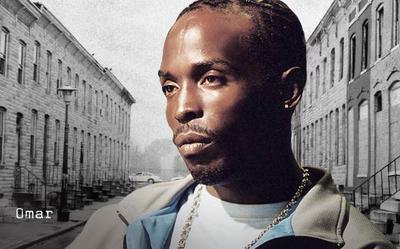
I’m not sure there’s an easy parallel in The Wire to Sand dan Glokta. Because Abercrombie gives us so much of his inner thoughts, it is easy to understand him as a person, even if we can’t empathise with him (at least, I hope nobody knows what it is like to endure what he has). Perhaps there are similarities with the lower ranks of Avon Barksdale’s organisation and that of Marlo Stanfield. Wee-Bey and Chris are given orders to kill and they do so. Glokta is given a task by Sult and he knows he must complete that task, in any way possible, regardless of the methods. None of them seem to have any compunction about the nasty things they do. They kill or torture without mercy, but to my mind, the real evil is above them. Sult, Avon and Marlo are utterly without remorse. Sult wants power at all costs, Barksdale wants the money, and Marlo seems mainly interested in not being “disrespected” by anyone. To these ends, they are happy to order their underlings to do horrible things.
Does Glokta have a choice? He makes it quite clear throughout the books that he doesn’t. Each solution to the current problem leads to a future dilemma. Each fork in the road has one way leading to his imminent demise. Do Wee-Bey and Chris have any choice? Perhaps more than Glokta, but I’m not sure they even contemplate there being another way. They have been born into an environment that breeds this kind of violence. What other life have they known? Wee-Bey’s son, Namon, is taken away from that world, and seems to prosper. He is given a chance by someone who has enough power to change the equation in his life. Glokta has no such luck. He must answer to Bayaz. It’s clear that Bayaz will find another to fill the post if the current occupant proves unreliable; Jezal learned this the hard way. Those lower down the ranks are expendable.
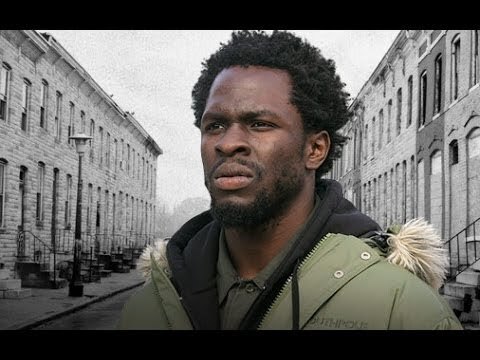
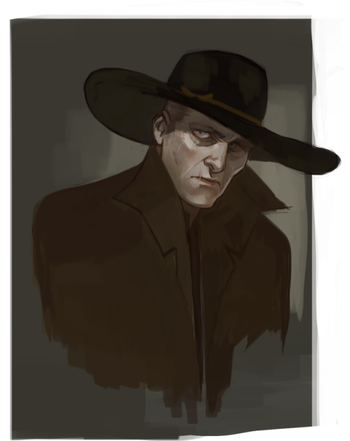
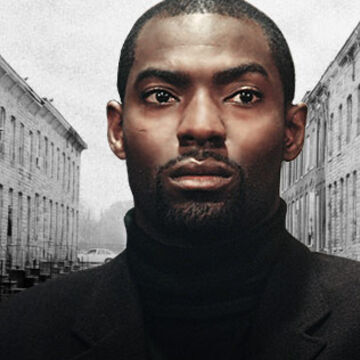
Ferro is even harder to find a match for in The Wire. She is one sense, vengeance incarnate, as that is all she strives for. But an external force, Logen, hinted that there could be something more to life. Logen was someone that maybe, just maybe, she could trust. But circumstances took him away, and neither of them had the courage, experience or awareness to act upon on what they were feeling.
Ferro is yet another tragic figure. Her burning vengeance is like rocket fuel, but she’ll never satisfy her thirst. If she somehow managed to kill every single Ghurkish, I suspect she wouldn’t stop and say, “A good job, well done!”, and then relax. I’m reminded of a line in a film I re-watched recently, Michael Mann’s excellent Heat. Al Pacino’s cop (or is it Diane Venora’s character repeating what he said to her?) says, “All I am is what I’m after.” Ferro is defined by her vengeance. If she were given another chance to define herself, maybe there would be a more hopeful future. But Bayaz is unlikely to offer that.
Bayaz is ultimately the embodiment of the status quo. Being close to immortal, he needs for things to stay the way they are, which is serving his interests. Anyone who wants to change the way things are will ultimately come up against him, even if they manage to overcome all those who stand before him. Change seems unlikely in the world portrayed in The Wire (which is the real world) because the institutions are either broken or need for things to remain as they are, ie. serving their interests. Is it hopeless?
I’ll end with an answer to that question, an answer from Tolkien’s world.
It’s hard to believe this right now, to be honest. But I have to believe that there is hope. Hope that someone can help another find a new path to travel. Hope that people will see for themselves that they are being lied to or misled, and so seek another road. Hope that there is more good out there than bad. Samwise would agree, and he’d say it’s worth fighting for.
That’s it for today, my friends. I hope you found this mildly entertaining and perhaps thought-provoking. The weather is cooling here (at least, it’s supposed to be; 29c today) and schools are back to normal. Numbers are getting better here and I feel hopeful that Japan is getting a handle on this pandemic. Please take care everyone and seek out hope over despair.
 Beer, books & bangers! This is the life!
Beer, books & bangers! This is the life!PS I don’t own the rights to any images here, of course. I hope I am using them all in the name of “fair use”.



